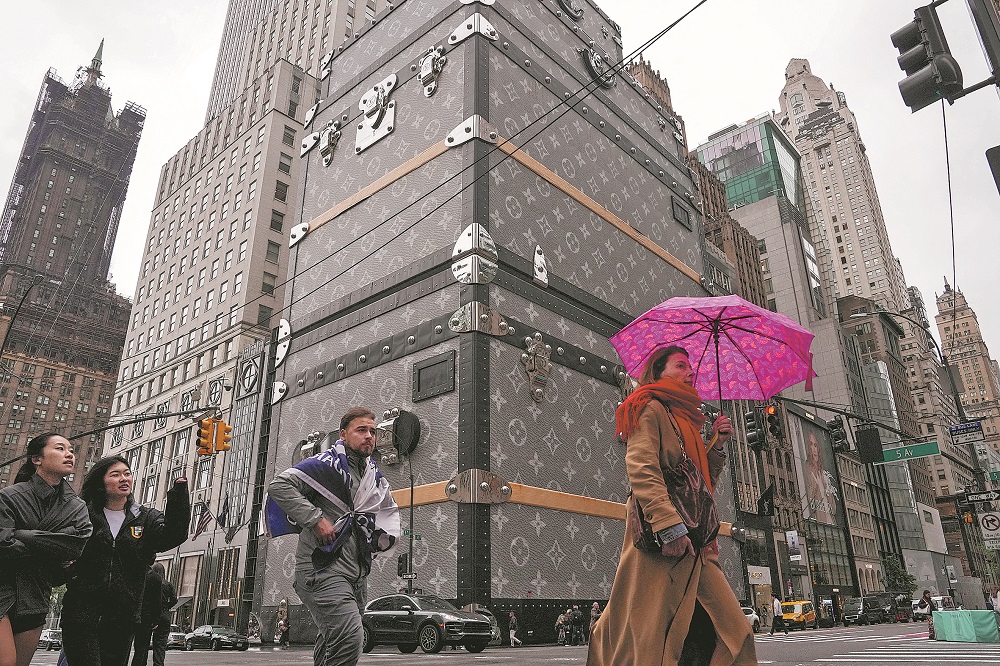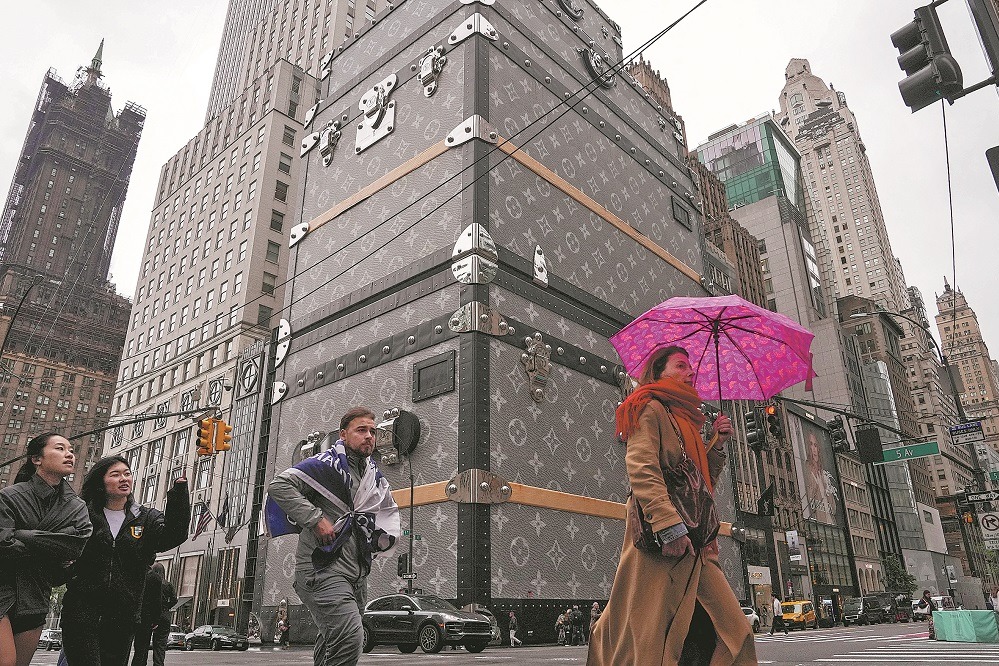EU readying apt response to US tariffs
Uncertainty clouds relations despite claims of soothing of tensions: Experts


Mutual trust between the European Union and the United States has been "severely undermined" by the recent tariff dispute, experts have said, and the outlook for relations remains fraught, despite claims of a soothing of tensions over the weekend.
On Friday, US President Donald Trump threatened to impose a 50 percent tariff on EU imports starting from June 1, saying negotiations with the trading bloc of 27 nations "are going nowhere".
Over the weekend, he spoke with European Commission President Ursula von der Leyen, a discussion she described as a "good call", which resulted in any possible tariffs being delayed until July.
"The EU and the US share the world's most consequential and close trade relationship," she wrote on X. "Europe is ready to advance talks swiftly and decisively."
Amid the diplomatic niceties, Zhang Haiyan, a professor specializing in international trade at the Hangzhou, Zhejiang province-based Zhejiang Financial College, has warned that the European perception that it had been "betrayed by its ally" meant it was ready to punch back if necessary.
"The EU's preparations and countermeasures for the latest US tariff policy move will be more thorough and comprehensive than in previous trade conflicts, enabling it to retaliate if negotiations fail in the following days," she told China Daily.
The EU has previously threatened to hit the US back with tariffs of its own, including a list of US exports viewed as possible targets, including cars and aircraft.
It has also long been wary of the activities and market dominance of major US-based tech firms, which could potentially be an area for it to target if trade tensions are ramped up further.
"The EU is acutely aware that the tariff war initiated by the US is unlikely to subside easily and that negotiations with the US will not necessarily proceed smoothly," Zhang said, adding that beyond the digital sector, financial services provided by US banks within the EU are also seen as likely candidates for countermeasures.
The institutions and agreements that led to the formation of what has evolved into the modern EU came about in the aftermath of World War II, as a way to tie neighboring countries together and stop them from ever going to war against one another again, after the continent was ripped apart by two devastating conflicts in less than 40 years.
But at his first cabinet meeting in February this year, Trump said "let's be honest, the EU was formed in order to screw the US …that's the purpose of it, and they've done a good job of it", an allegation he has made numerous times.
Lars Klingbeil, finance minister in Germany's newly-formed government, has said that "serious negotiations" with Washington are needed, rather than "further provocations", and that he has spoken to his US counterpart Scott Bessent about the issue, because "the US tariffs endanger the US economy just as much as the German and European economy".
Causing anxiety
Oliver Oehms, executive director and board member of the German Chamber of Commerce in China-North China, said that the ongoing lack of certainty about what would happen next would inevitably cause anxiety, which could have global consequences.
"An undeniable reality is that the current situation still makes German companies feel uneasy, this uncertainty may gradually trickle down to investment decisions, leading firms to adopt a more cautious approach in their plans for both the US and Asian markets," he said.
However, he added, this turbulence could possibly reposition the World Trade Organization, or WTO, on the global stage.
"At the global level, the governments of Germany and China both recognize the value and role of the WTO," he said. "Any efforts to strengthen or reestablish the importance and influence of the WTO, whether it comes from China or Europe, should be welcomed."
Since their initial announcement on April 2, many of the tariffs that Trump unveiled have been altered, delayed or suspended, causing financial confusion across the world.
Zak Stambor, an analyst at eMarketer Inc, a New York City-based market research company, said that "ever-shifting trade policies" meant "navigating an increasingly unpredictable landscape", making life and any attempts at financial planning harder for manufacturers and consumers.
"The policies in place today may well shift tomorrow, making medium-term planning challenging and long-term planning nearly impossible," he said. "It is no wonder so many companies are pulling their guidance altogether."

































